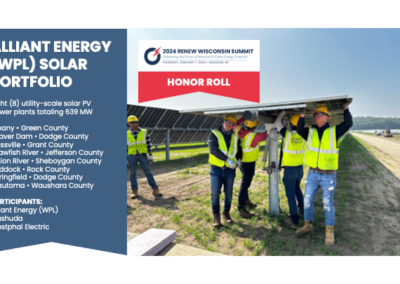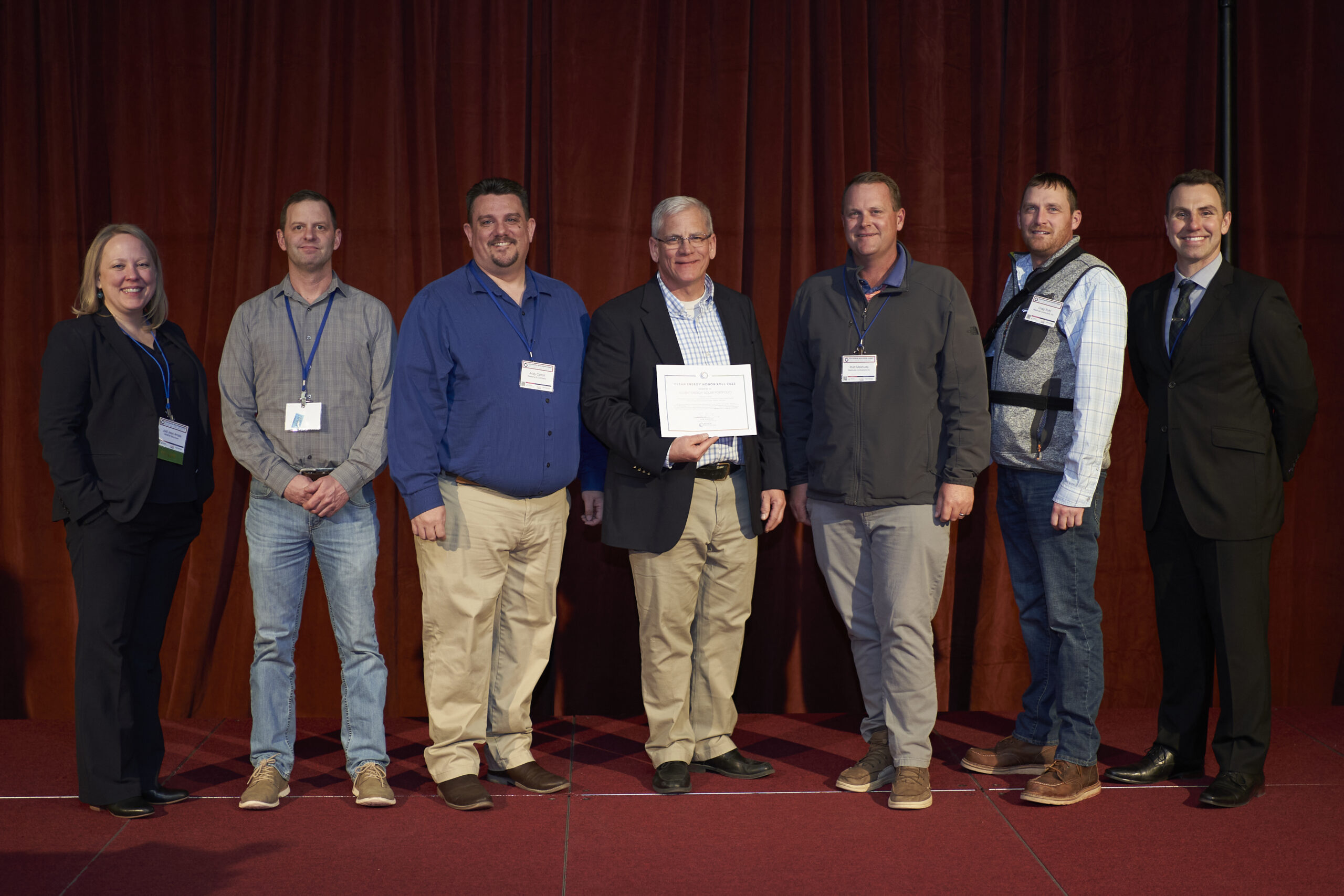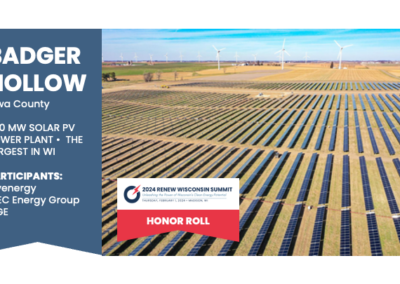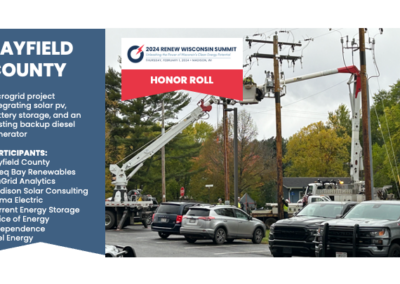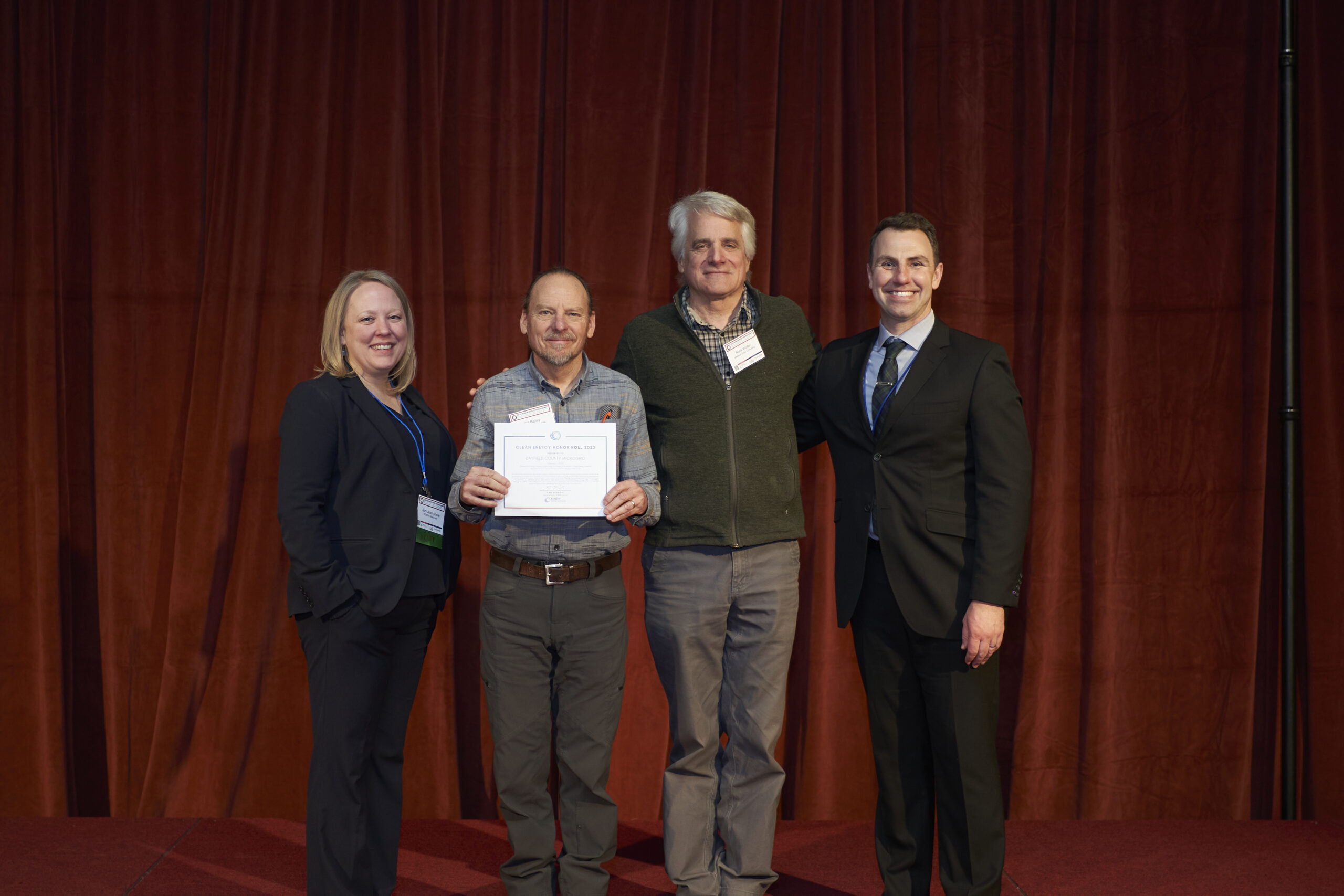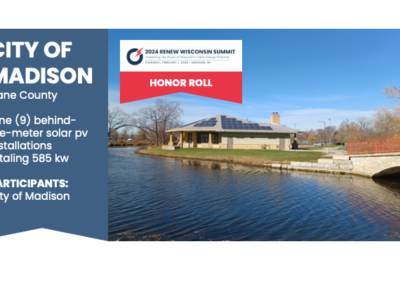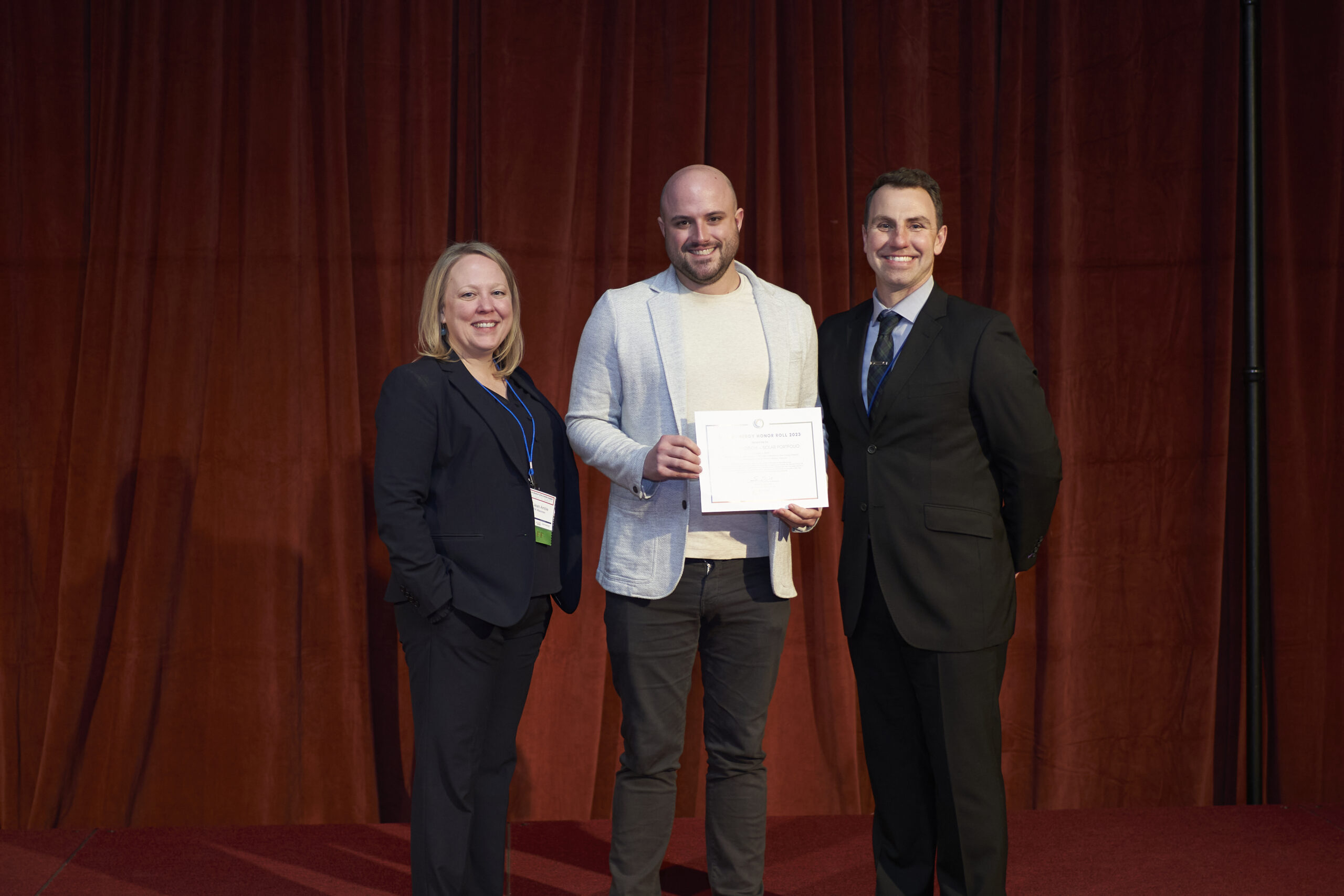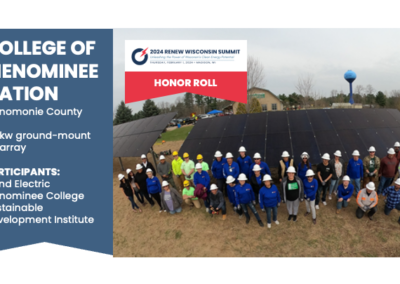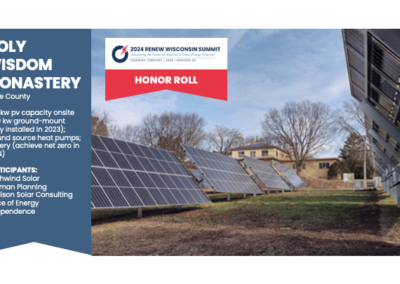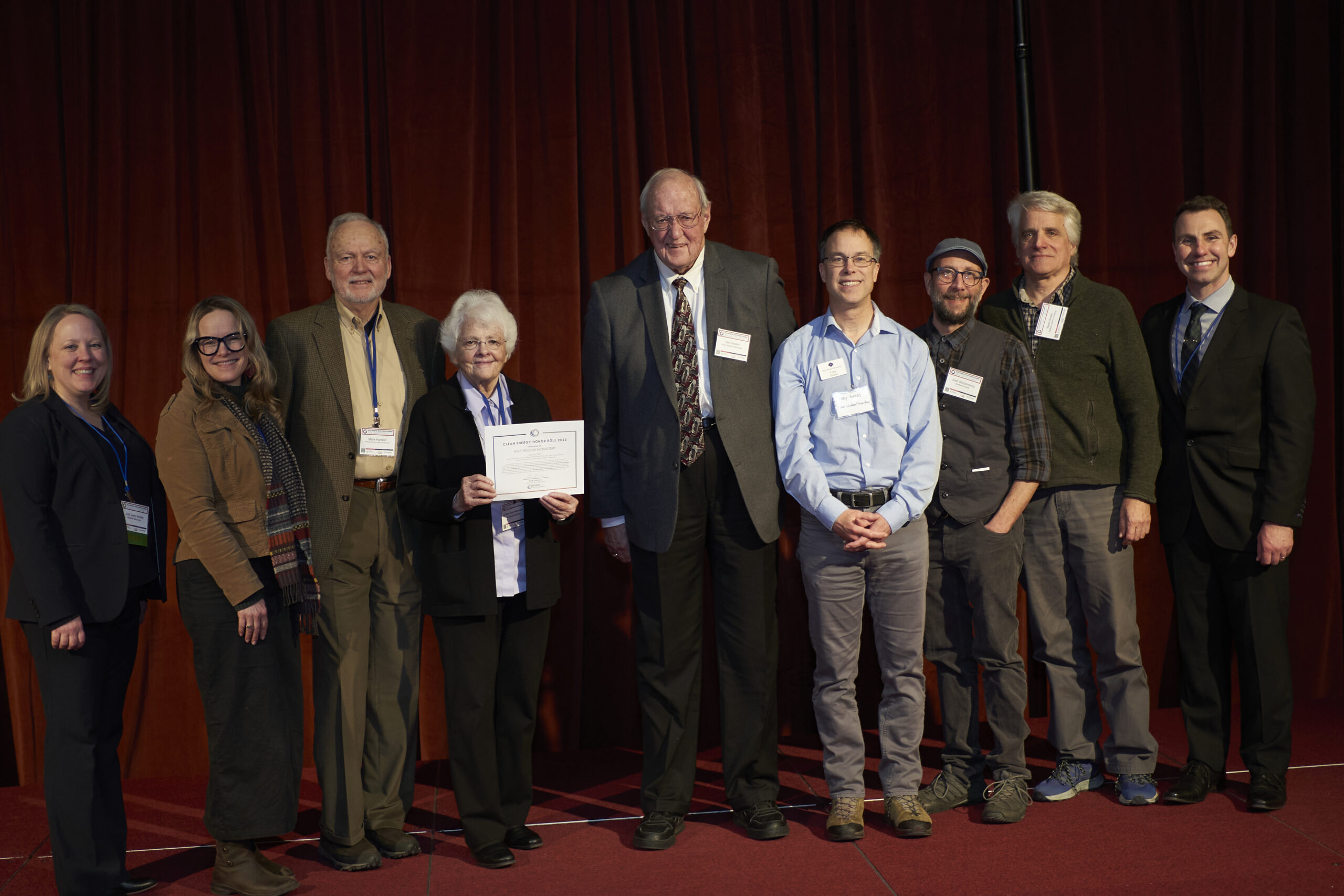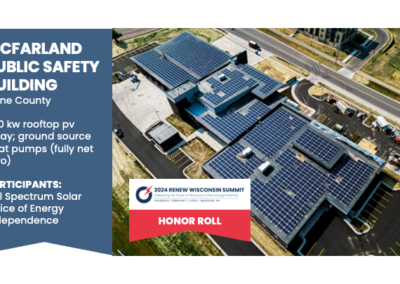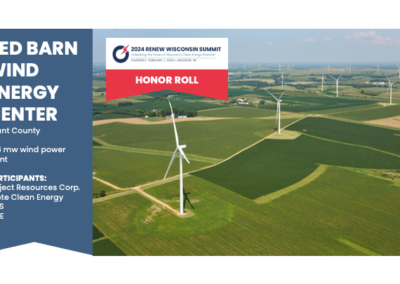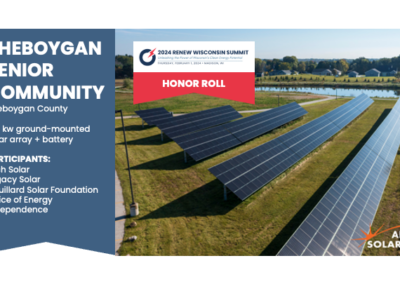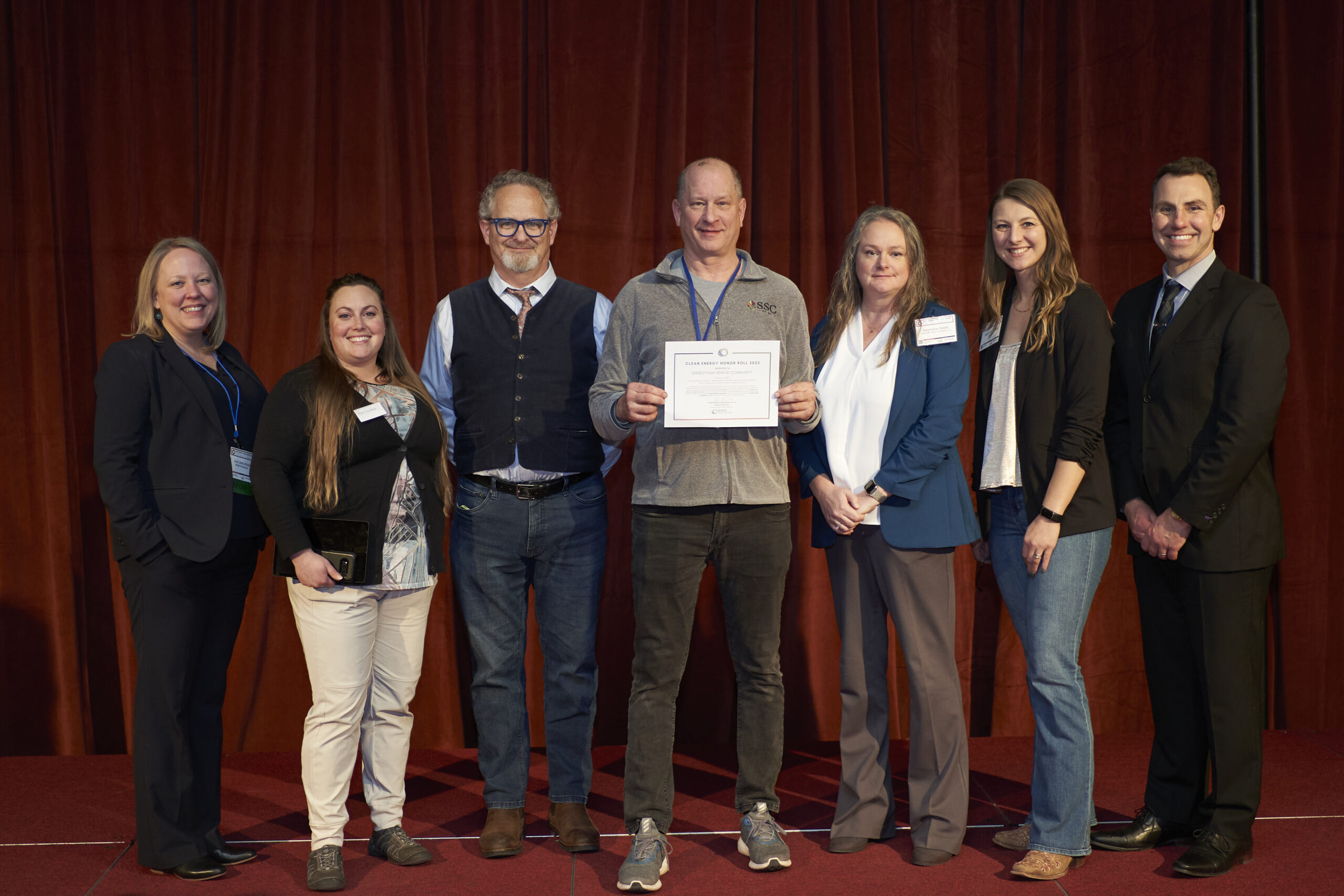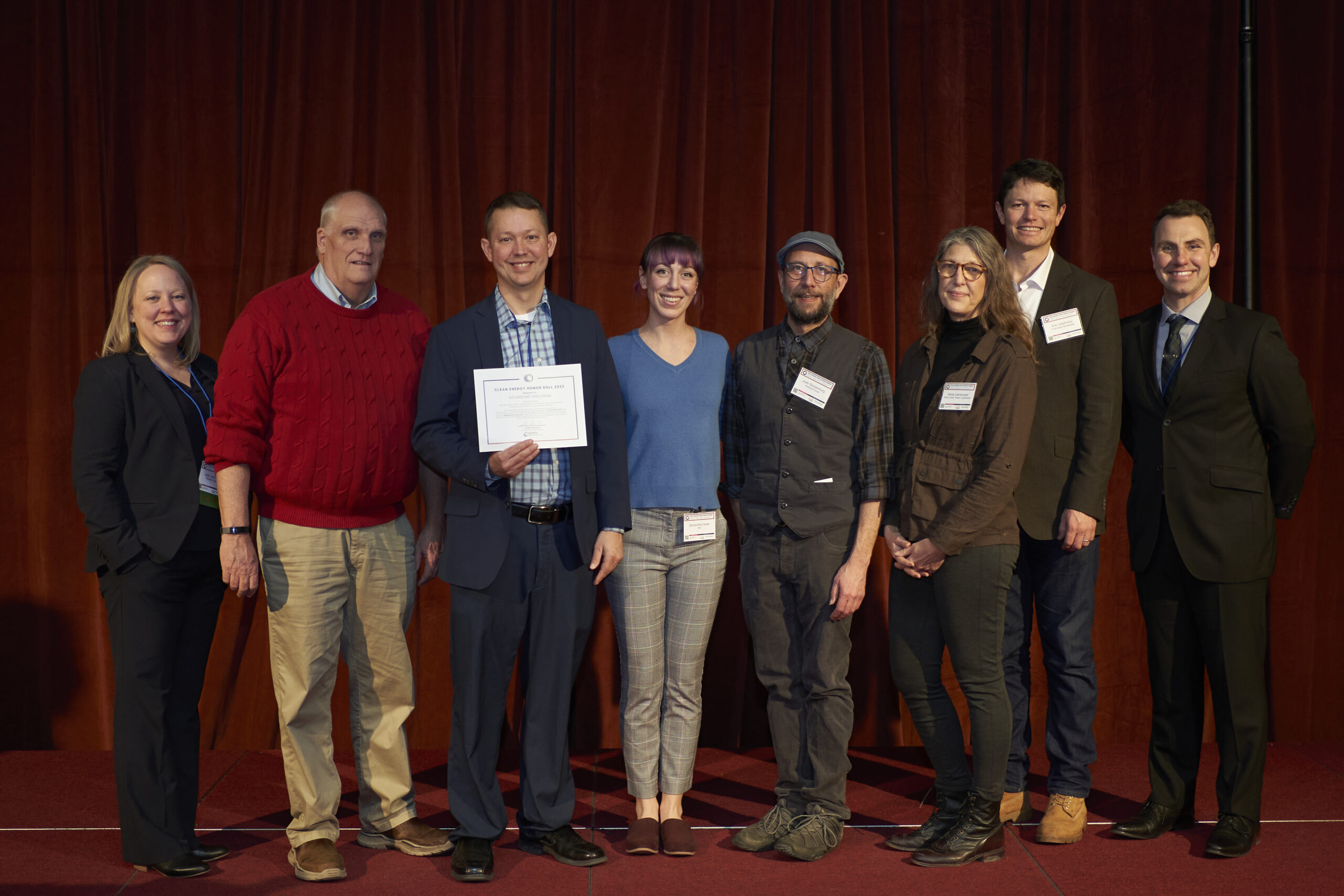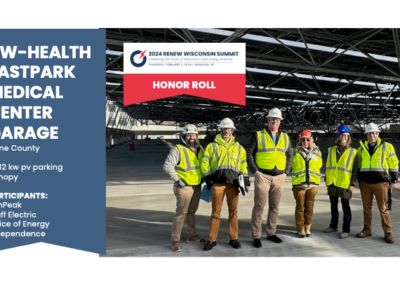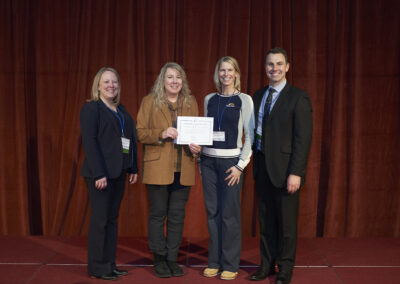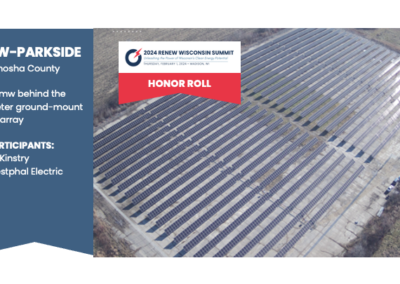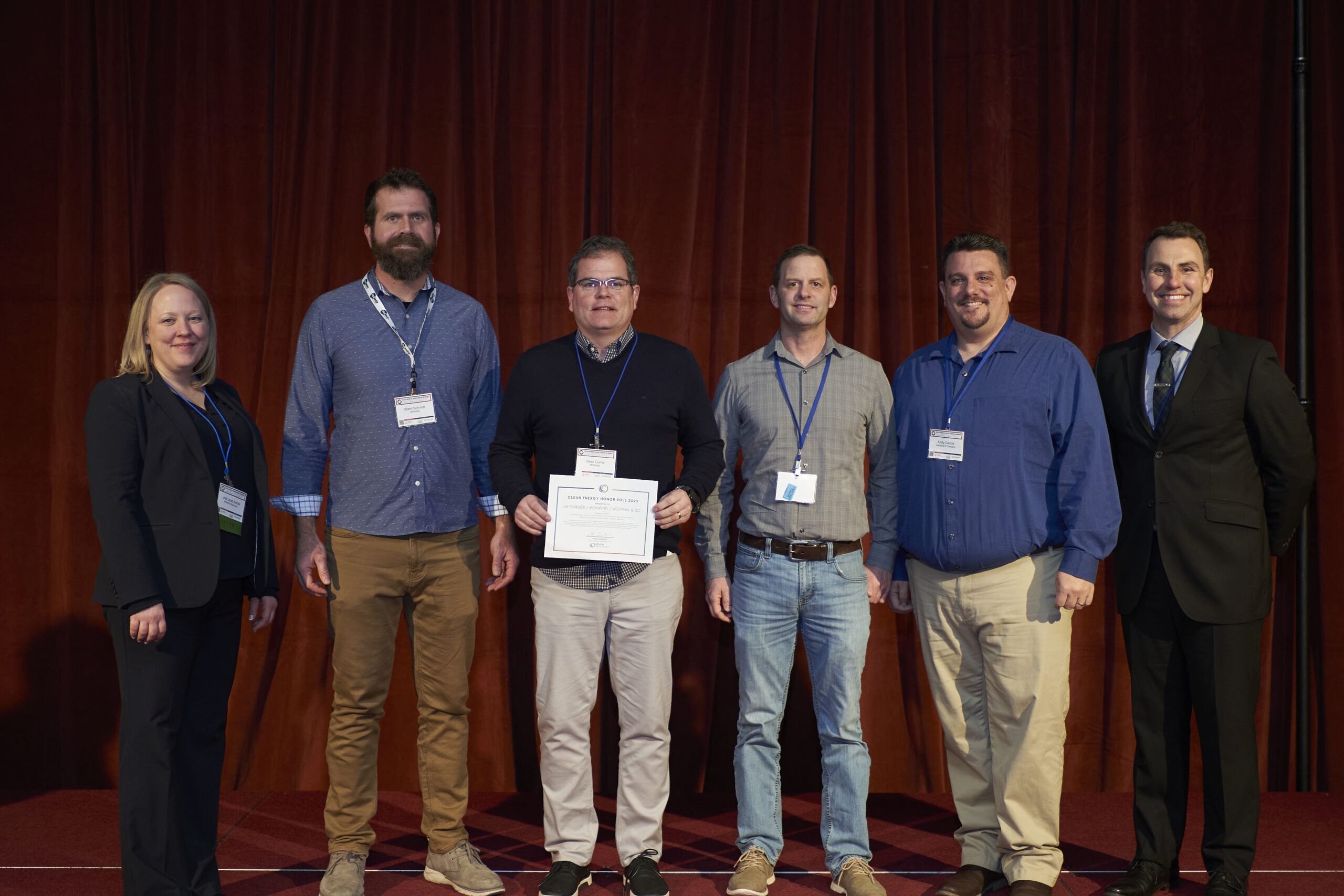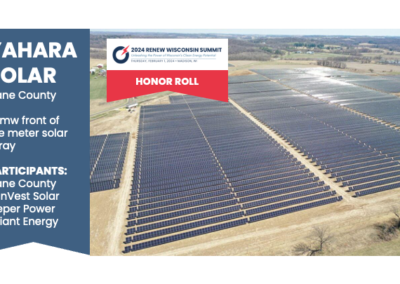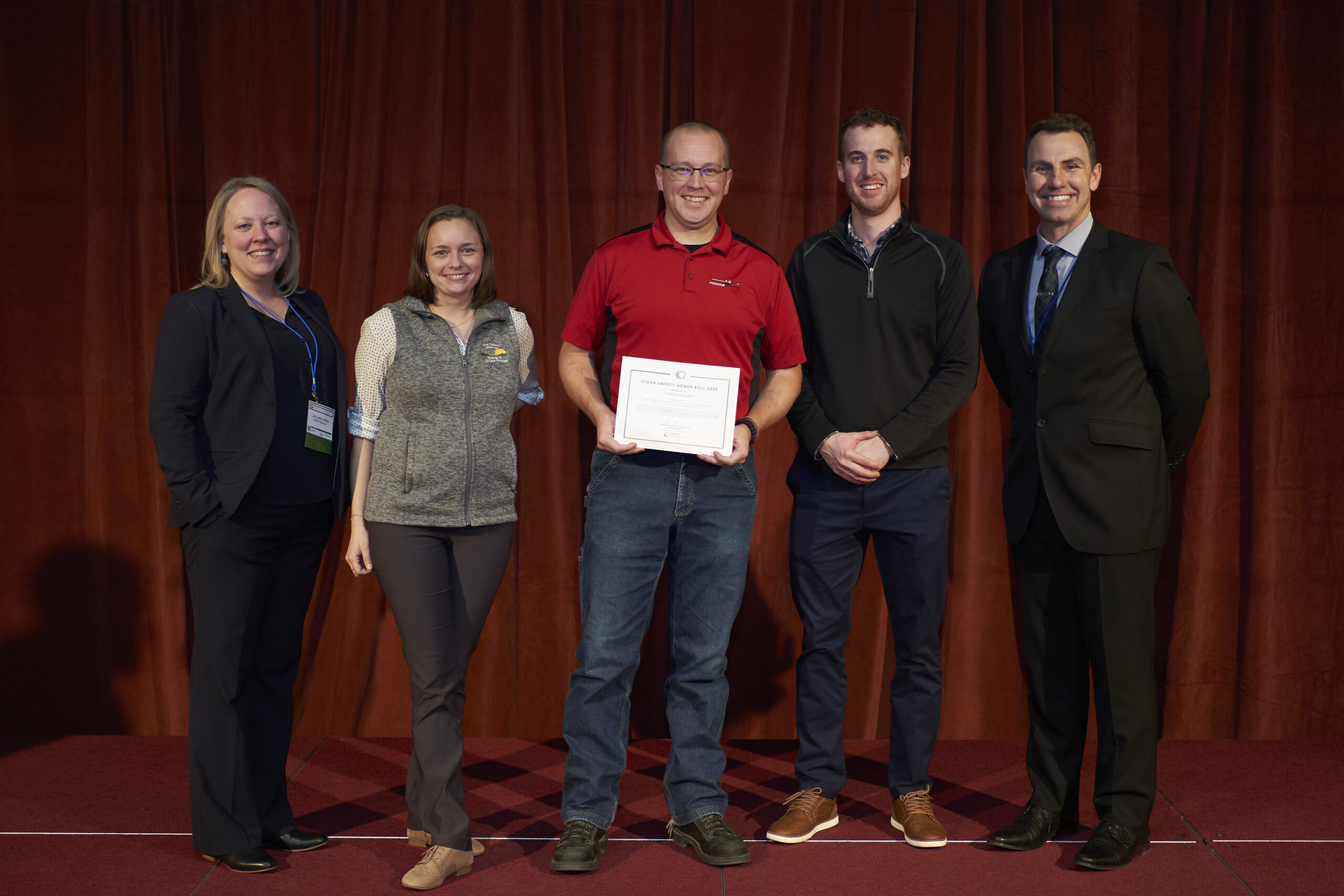by RENEW Wisconsin | Jul 31, 2024 | Advocacy, Community, Community Solar, Electrification, Energy Storage, Health, Home, Inflation Reduction Act, Local Initiatives, RENEW Wisconsin, Renewables, Sustainability
The Menominee Indian Tribe of Wisconsin is committed to preserving their environment and fostering sustainable growth. In the face of a rapidly changing climate, investing in clean energy isn’t just about harnessing the power of the sun and wind—it’s about empowering their community, protecting their sacred lands, and ensuring a vibrant future for generations to come. With increased clean energy funding opportunities, such as those provided by the Inflation Reduction Act, the Menominee Indian Tribe of Wisconsin is creating new opportunities, enhancing economic resilience, and supporting the Tribe’s cultural values.
Special thanks to Isaiah Ness (Sun Bear Industries) and Zoar Fulwilder (Mavid Construction Services) for their work to advance clean energy in Tribal communities and for inviting RENEW to witness the transformation.
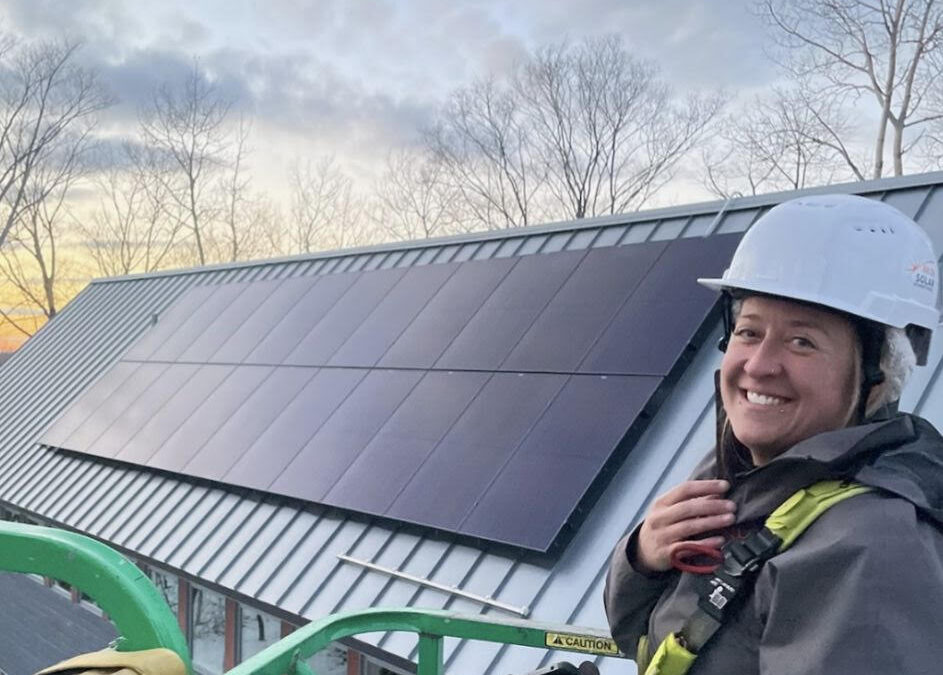
by Alex Beld | May 20, 2024 | Clean Energy Works, Renewables, Solar
Sam Lammers entered the renewable energy industry a little over a year ago but has already taken on a leadership role at Arch Solar as the DC Crew Lead. The Wisconsin native was raised in Sheboygan and until recently, she worked in the nearby Washington and Waukesha Counties as an Invasive Species Coordinator and also Conservation Warden for the Department of Natural Resources.
“…sustainability and conservation have always been a passion of mine,” Lammers said.
Lammers went to school at UW – Green Bay where she earned her Bachelor’s degree in environmental policy and planning. Her passions, however, extend beyond the environment. Lammers is also the owner of her yoga studio and it was through one of her clients that she learned about Arch Solar.
“Actually finding Arch Solar came as kind of an accident, I was having breakfast with one of my yoga clients,” Lammers said. “I actually own a yoga studio, and she was telling me about her job and how I would be a really good fit for it. She asked me if it’s something I would be interested in and if I would check out.”
Lammers quickly learned how right her client was. She has found the work rewarding and just shortly after her one-year anniversary, Lammers is already looking for ways to grow in her role. Within the next year, she hopes to be a part of the electrician apprenticeship program.
“I absolutely love the opportunities I get at the job,” Lammers said. “The role is always kind of growing and adapting, and that’s what keeps me going.”
Among the many things Lammers enjoys about her work is working with customers and generally educating the public about the work she does. Lammers said that when she gets on a job site she enjoys the opportunity to not only ease the minds of customers but help them realize their sustainability goals.
“I believe in all forms of sustainability and the renewable industry,” Lammers said. She added that she loves being able to bring her passion for being outside while working hard in a role within the renewable energy industry.
And though she has a deep appreciation for her role in the industry and the team she works with, the position is not without some challenges.
“I would say my biggest challenge, just being almost a decade older than most of the guys I work with on the roof, is just kind of the physical demand of the job,” Lammers said. She noted that there are days she doesn’t feel like getting on a roof, but she reminds herself how great it is to get to work outside. Good teamwork is essential when regulary working on roofs. As Lammers noted she has a fabulous team that trusts each other and has each other’s backs.
“I appreciate the wide variety of individuals that I get to work with in the renewables industry,” Lammers said. “The field crews, office staff, salespersons, and customers all bring their own experiences, expertise, and questions to every job we do and it’s incredible being able to learn from everyone involved. The renewables industry is an ever-growing field and there is always something new and exciting to learn about or adapt to our practices on the roof.”
by Alex Beld | Feb 14, 2024 | Community, Events, RENEW Wisconsin, Renewables
RENEW Wisconsin selected 13 projects for this year’s Honor Roll. These projects and the organizations involved in them demonstrate leadership, ambition, and climate awareness in their design and use of clean energy.
ALLIANT ENERGY (WPL) SOLAR PORTFOLIO
In 2023, Alliant Energy’s Wisconsin utility placed in service eight utility-scale solar plants totaling 639 megawatts as part of its Clean Energy Blueprint. By the end of the year, Alliant had finished work on 11 of the 12 projects in its solar portfolio. When the final solar plant is completed this summer, they will together generate approximately 20% of Alliant’s resource mix in Wisconsin, sufficient to power nearly 300,000 homes annually. Many Wisconsin contractors participated in the construction of these projects, including Westphal Electric and Mashuda Contractors.
BADGER HOLLOW
Developed by Invenergy and owned by WEC Energy Group and Madison Gas and Electric, Badger Hollow Solar Park is now fully operational. At 300 MW, it is Wisconsin’s largest operating solar power plant, capable of generating 6,000,000 megawatt-hours per year. This is equal to the annual consumption of 90,000 Wisconsin households. Badger Hollow was one of the first utility-scale solar plants approved by the Public Service Commission in 2019. Since then, Invenergy has secured permits for four more solar and storage projects in Wisconsin, totaling 1.35 gigawatts. Two of them are under construction today.
BAYFIELD COUNTY
Bayfield County successfully commissioned the area’s first multi-building, intelligent microgrid on November 10, 2023. The Bayfield County Courthouse and Jail automatically integrate solar PV, battery storage, and backup diesel generation under a single utility meter. The system will provide electric power with or without the electric grid and can optimize economic benefits during normal grid-tied operation through features like demand management and energy arbitrage. The system is not only a first for the area but a first for Wisconsin and the Midwest.
CITY OF MADISON
In the previous decade, the City of Madison set a goal of installing one megawatt of solar capacity by 2020 to supply its own facilities. By the end of 2022, about 1.5 MW of behind-the-meter solar power had been installed, mostly through the City’s Green Power training program. In 2023, the City added 585 kW of solar PV at nine different facilities, including 200 kW apiece at both Streets West and the Nakoosa Rd. Fleet Garage, bringing overall installed PV capacity serving City facilities to more than 2 MW.
COLLEGE OF MENOMINEE NATION
In 2023, Eland Electric partnered with the College of Menomonee Nation to install a 40-kilowatt solar array on the tribe’s reservation in Keshena. In addition to powering a college building, this array kicks off an initiative to help local community members develop the skill set needed for installing and maintaining solar arrays. The Menomonee Nation hopes to build its own reservation-wide solar energy utility service.
HOLY WISDOM MONASTERY
In 2023, Holy Wisdom embarked on an ambitious effort to become an all-electric facility using carbon-free sources onsite to the greatest extent possible. The monastery’s journey to a carbon-free future began with a significant expansion to the onsite PV capacity already in place. Designed by the team of Hoffman Planning and Madison Solar Consulting and installed by Northwind Solar, the new array is built upon single-axis trackers, and its output flows directly into the utility distribution system. When the ground-source heat pump and battery storage system are commissioned later this year, Holy Wisdom Monastery will have effectively achieved carbon neutrality. Wisconsin’s Office of Energy Innovation helped kick off this project with a $575,000 grant awarded in 2021. Local solar developer John Young contributed financing for the solar array.
MCFARLAND PUBLIC SAFETY BUILDING
In 2023, the village of McFarland celebrated the opening of its new Public Safety Center, likely the first net-zero municipal building in the state of Wisconsin. With 51 geothermal wells for efficient heating and cooling as well as solar panels that can produce up to 470kW of photovoltaic energy, the facility will produce as much energy onsite as it consumes annually, leading to its designation as a net zero facility. Taking advantage of federal and state clean energy funding (including an Energy Innovation Grant), this $20 million building should pay for itself in year one.
RED BARN WIND ENERGY CENTER
Commissioned in 2023, the 92 MW Red Barn Wind Park was developed by Minnesota-based PRC Wind and built by Allete Clean Energy for the project’s current owners, WEC Energy Group and Madison Gas and Electric. Approved by Grant County in 2019, Red Barn is the first project in Wisconsin to have advanced from the proposal stage to full operation under the state’s Wind Siting Rule (PSC 128). The output from this 28-turbine project should equal the annual consumption of 50,000 Wisconsin households.
SHEBOYGAN SENIOR COMMUNITY
Sheboygan Senior Community is a faith-based, nonprofit continuum of care facility providing respite, short-term rehab, assisted living, skilled nursing, and end-of-life services. Designed and installed by Plymouth-based Arch Solar, the installation consists of a 198-kW ground-mount solar array and a battery energy storage component. In addition to a grant from the Wisconsin Office of Energy Innovation, the project’s financing relied on a generous commercial benefactor, who provided 95% of the funding for the senior community’s project. The organization worked with Legacy Solar Cooperative to secure this funding. In addition, Couillard Solar Foundation donated one-third of the 438 panels that make up the array.
SOLARSHARE WISCONSIN
In 2023, SolarShare Wisconsin, a cooperative entity organized under Chapter 185, invested capital provided by members to bring two smaller solar projects in western Wisconsin to fruition. SolarShare Wisconsin partnered with OneEnergy Renewables, which has developed more than 20 smaller-scale solar projects across Wisconsin, to build its first two arrays in Juneau County, totaling 4.5 MW. Now energized, the Lemonweir (lemon•weer) and Webster Creek projects supply electricity to Oakdale Electric Cooperative. SolarShare Wisconsin plans to add another solar project to its portfolio later this year. At a site near Lake Hallie (rhymes with rally) in Chippewa County. Like the first two projects, the Lake Hallie project, also developed by OneEnergy, will be financed with capital provided by SolarShare Wisconsin members.
UW-HEALTH EASTPARK MEDICAL CENTER GARAGE
In 2023, UW-Health partnered with SunPeak and Staff Electric to design and oversee the construction of a 1 MW solar parking canopy on the garage adjacent to its Eastpark Medical Center. This PV canopy not only supports UW-Health’s carbon reduction goals but also provides additional protection to patients and visitors using the facility.
UW-PARKSIDE
UW-Parkside partnered with McKinstry to host a 2.1 MW solar array, similar to the one McKinstry designed for UW-Platteville a year earlier. Built on a parking lot, UW-Parkside’s array is the largest installation in 2023 serving a Wisconsin school or municipality. McKinstry selected Westphal Electric to build the structure and interconnect the PV system to the grid. The electricity generated by the McKinstry/Westphal installation flows directly to UW-Parkside campus buildings.
YAHARA SOLAR
As noted on Dane County’s website, the 17-megawatt Yahara Solar project, completed in 2023, enables Dane County to become not only the first county government in the state to achieve 100% renewable electricity status, but also the 4th county in the nation to reach the 100% goal. Key partners in the project include Alliant Energy (the local utility), SunVest (the project developer and owner), and Pieper Power (the installation contractor). Yahara Solar will produce more than 36 million kilowatt-hours of renewable electricity per year — enough to power more than 3,000 Dane County homes.
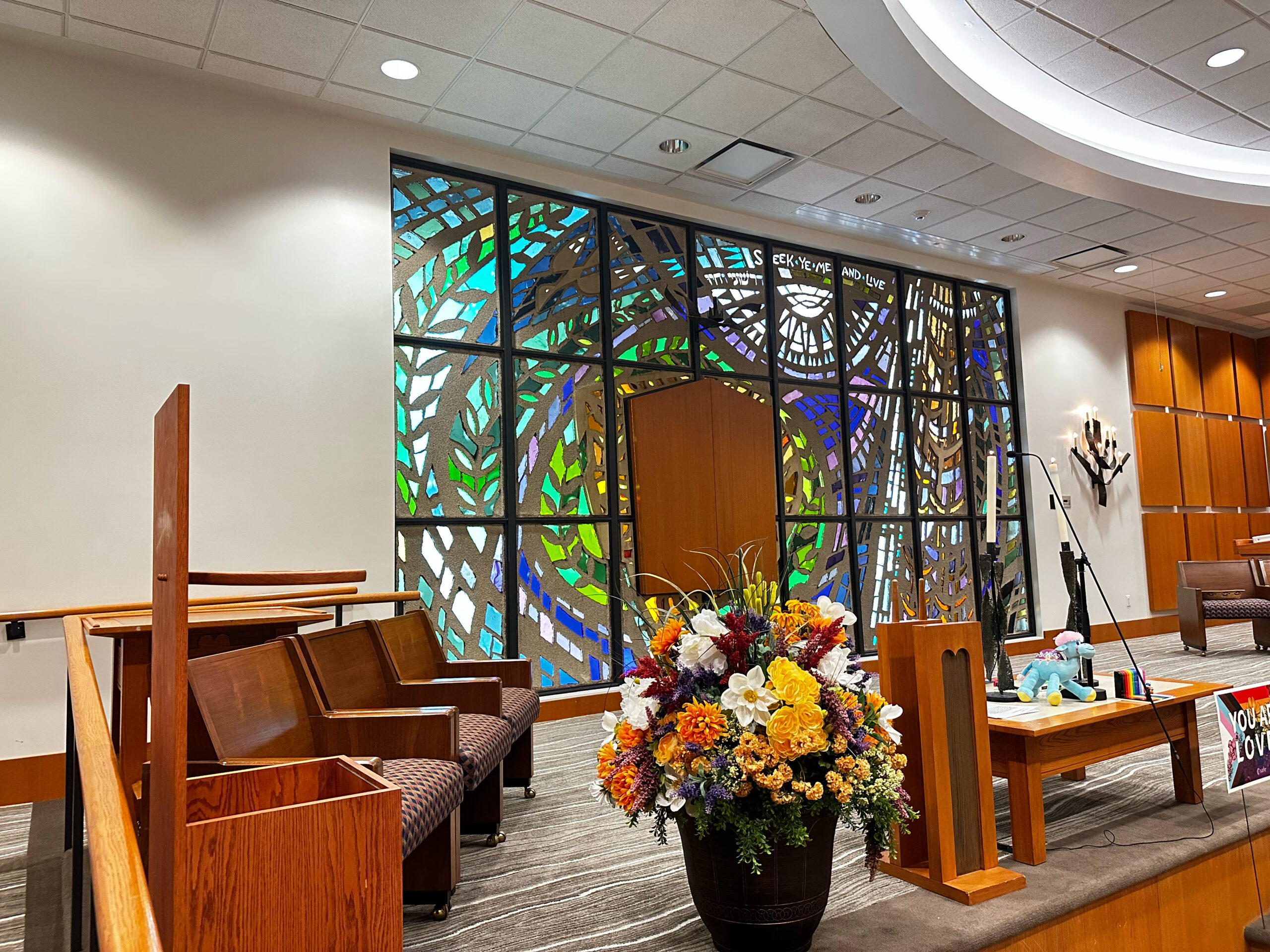
by Lauren Cohen | Oct 27, 2023 | Renewables, Solar, Solar for Good
On Friday, October 13, Temple Beth El, a progressive Reform synagogue located in Madison, set a remarkable example by installing a 102-kilowatt solar array. Full Spectrum Solar installed the array, which is expected to save the synagogue approximately $12,000 annually.
The array will offset 31.5% of their projected annual energy consumption, contributing significantly to their sustainability goals, which are aligned with aspects of their overall mission. For more than 84 years, Temple Beth El has remained dedicated to its vision to create and sustain a vibrant, inclusive, and engaged community that connects individuals from all walks of Reform Jewish.
Affiliated with the Union for Reform Judaism, Temple Beth is the sole Reform Jewish congregation in Madison, providing a welcoming haven for Jewish people to come together and fulfill their spiritual, educational, ethical, social, and emotional needs and expectations.
The decision to install solar panels was not one that was taken lightly. In 2018, the temple established a task force to review investment priorities for its 75-year-old building. Recognizing that their roof offered an ideal space for solar panels, they made necessary improvements to support the longevity of the installation. This solar initiative serves two crucial goals for their community: reducing their carbon footprint and reliance on fossil fuels and lowering their energy costs.
The success of this solar initiative was made possible through multiple funding sources. Temple Beth El was a grant recipient of the Solar for Good program, which supplied them with half of the solar panels required for the project. Additional financial assistance came from the Goodman Foundation, which helped offset the costs of the remaining solar panels. With the passage of the Inflation Reduction Act’s Elective Pay provision, the temple will receive a 30% refund from the federal government, significantly reducing the overall project cost.
The completion of Temple Beth El’s solar array is a testament to their commitment to both environmental sustainability and fiscal responsibility. By harnessing the power of the sun, they are taking strides to reduce their carbon footprint and inspire their community to follow suit. This initiative not only aligns with their vision of inclusivity but also paves the way for a greener and more energy-efficient future.
Temple Beth El’s solar journey serves as a reminder of the importance of collective action to electrify Wisconsin’s energy mix and transition away from fossil fuels. With its newly installed solar array, the organization has not only reduced its carbon footprint but also set a compelling example for others to follow.
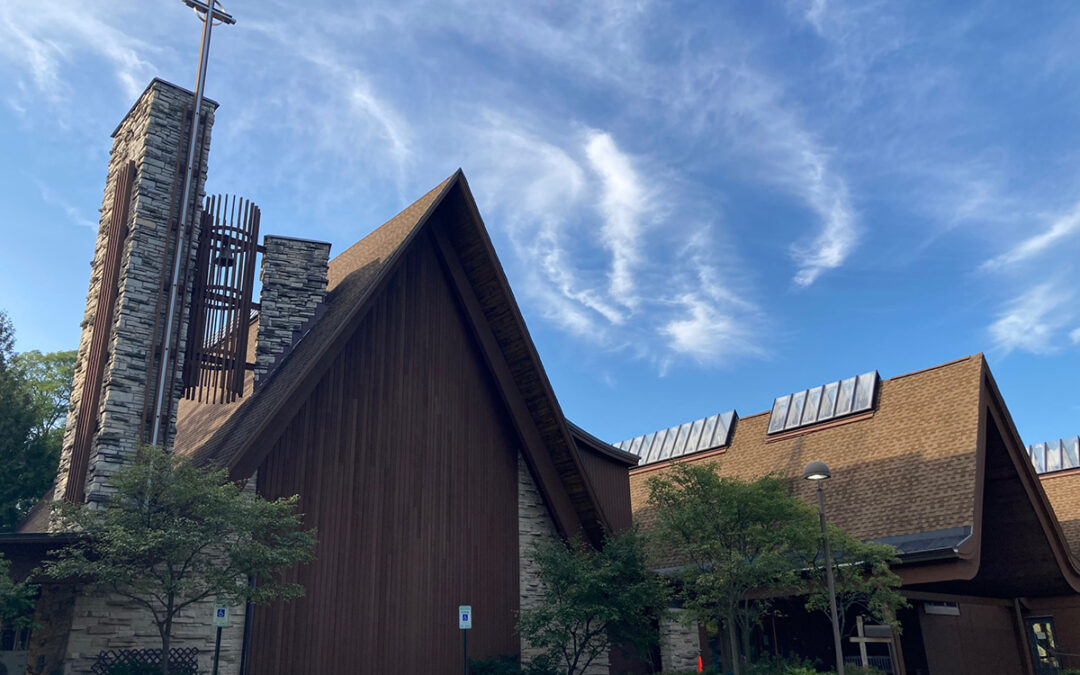
by Lauren Cohen | Sep 28, 2023 | Renewables, Solar, Solar for Good
Located in Madison, Wisconsin, St. Dunstan’s Episcopal Church, founded in 1958, has embarked on a notable journey towards sustainability and environmental responsibility. This warm and inclusive congregation, comprising approximately 200 households, places a strong emphasis on creation care, welcome for all, and the full inclusion of LGBTQIA+ individuals. Their recent venture into renewable energy underscores their commitment to their faith and environmental stewardship.
St. Dunstan’s has long been aware of its carbon footprint. In 2016, the church established a Creation Care mission statement, outlining its commitment to nurturing a reverence for the natural world, reducing its ecological impact, and broadening its involvement in environmental initiatives. To this end, the church had previously sourced all its energy through MGE’s shared solar and green energy programs. However, with mounting concerns about climate change, the congregation sought to take more direct action.
In the fall of 2022, St. Dunstan’s Episcopal Church received a grant from RENEW Wisconsin’s Solar for Good program. This initiative supports nonprofits in the state in installing solar arrays, marking the inception of an ambitious effort to generate renewable energy on-site. This decision aligned with the church’s pre-existing commitment to environmental stewardship.
The resulting 29.7-kilowatt solar array, installed by Full Spectrum Solar, consists of 55 panels and is anticipated to offset 75 percent of their estimated annual energy consumption.
Financial backing for the project was a collaborative effort. St. Dunstan’s secured a generous gift from a donor, further complemented by pledges from congregation members and friends. Additional financial support was provided through grants and incentives, including the MadiSUN Backyard Solar grant and Focus on Energy support. Enthusiasm surrounding the project sparked additional donations from congregation members.
Beyond achieving self-sufficiency through energy generation, St. Dunstan’s remains firmly committed to community service and outreach. The solar project aligns harmoniously with their mission of social justice and community support. As energy costs rise and budgetary pressures mount, the solar project is anticipated to alleviate some of these financial burdens, enabling the church to reallocate funds back into its mission.
In the summer of 2023, St. Dunstan’s hosted a solar dedication event. This event served as an opportunity to celebrate and promote their 29.7-kilowatt solar array to their congregation and the wider community. It included information sessions on the economic and environmental benefits of solar energy, as well as details regarding financial incentives for installing a solar system.
St. Dunstan’s Episcopal Church’s commitment to renewable energy is a shining example of how faith-based organizations can lead by example in environmental stewardship while simultaneously nurturing a sense of community, social justice, and environmental consciousness. Their dedication to their values and the environment serves as a compelling illustration of the positive impact such initiatives can have on local communities and the broader world.
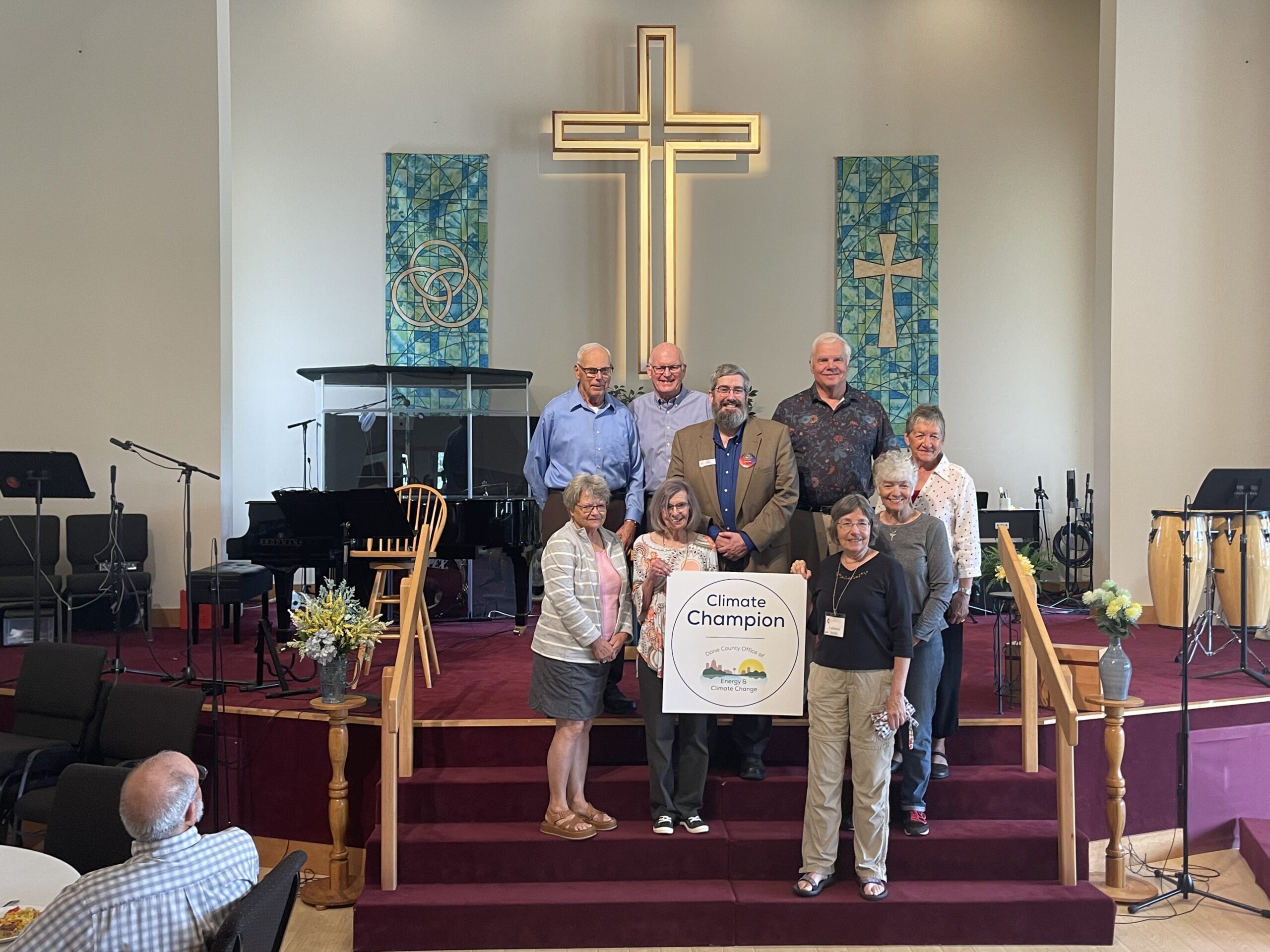
by Lauren Cohen | Sep 28, 2023 | Renewables, Solar, Solar for Good
On Sunday, September 24, People’s United Methodist Church (PUMC) hosted a dedication ceremony to celebrate the completion of its solar array. The solar project is substantial, with an installed capacity of 70.3 kW, poised to offset approximately 64 percent of the church’s power consumption. In addition, a 7.56-kW installation at the church house is expected to generate 10,000 kWh annually, covering 94 percent of its current power usage.
PUMC’s commitment to sustainability extends beyond solar installations. They were named a 2023 Climate Champion by the Dane County Office of Energy and Climate Change for their consistent efforts.
“Climate justice is social justice, and our commitment will do more for people worldwide than almost any other effort we can support at this time,” said representatives from the church. “Together, we are doing a powerful ministry for our world today and for future generations.”
Funding for this solar project was secured from various sources, including a grant from Solar for Good, financial support from Focus on Energy, and a 30% elective pay from the federal government under the Inflation Reduction Act. A vital component of their fundraising efforts was a capital campaign, fortified by a pledge from an internal donor.
Established in 1845, PUMC has been a steadfast presence in their community. PUMC is a Christian community of faith open to all people, focused on issues such as racial inequality, food security, and environmental justice.
PUMC’s journey in environmental stewardship began with small-scale initiatives; however, their ambitions for sustainability expanded in 2019 when they initiated plans for a solar installation. Unfortunately, the COVID-19 pandemic introduced logistical challenges and financial uncertainties that momentarily halted progress.
Nevertheless, their objective remained unchanged — commit to environmental stewardship and reduce their carbon footprint. They also sought to enhance community engagement by participating in the Midwest Solar group buy program for Dane County in the spring of 2023 as part of their solar project.
“Midwest Solar Power was happy to work with the Peoples United Methodist Church and Solar For Good to bring solar to the church and parsonage,” said Alarik Roselund, Partner and Co-founder of Midwest Solar Power. Established in 2009, Midwest Solar Power is a Madison-based solar installation company dedicated to providing specialized and high-quality work to its clients.
Other notable works include participating in a Solar group buy, implementing recycling initiatives, hosting an annual Green Fair, and exploring the possibility of adding heat pumps for the church office and preschool.
PUMC’s solar project goes beyond a technological upgrade; it exemplifies its commitment to environmental preservation and carbon footprint reduction. This effort guarantees not only long-term reductions in utility costs but also allocates substantial financial resources that can be redirected toward their other critical social justice initiatives. PUMC’s journey toward environmental stewardship stands as a compelling example for other nonprofit organizations and community groups, showing how sustainable practices can foster positive change.


